Don Tibbel, a Simple Life Around Work and Family
Don Tibbel (b. 1923) settled in Vancouver in the 1950s after a drought drove his family out of their native Saskatchewan.
TEXT VERSION
Don Tibbel: I get up at about, oh, at least 4:30 – 5:00 every morning. Well, that’s a farmer.
B. M.: Farmer hours?
Don Tibbel: And I get the paper and get ready to go out, then Bill and I go downstairs to my suite… They got the crossword puzzle; I’m not too hep on crosswords, but I gotta try it, and then the next day I can see what happened.
B. M.: What do you remember of the 1920s?
Don Tibbel: Well, not too much, I was born in 1923.
B. M.: 1923? So you were seven (when the ’20s were over).
Don Tibbel: My mother died when I was three, and I lived with my grandmother who used to play for dances. She played the piano, and I played the violin. We used to play for dances…
B. M.: Violin? Like a fiddle, you mean?
Don Tibbel: Yes, and I had to quit, because, one day—it was in the winter time—we were at Sunny Glen School, where I went, and it was, oh, God, it was cold, 40ºC-50ºC below. So when I got in the school, of course it was warm, and I took my violin out, and I sat it on the chair, right close to me, and this one girl I knew— who was pretty hefty— she came along and sat on it and smashed the violin all to rat shit! I could’ve killed her!
B. M.: Sat on it?
Don Tibbel: Sat on it! She turned around and she didn’t even see! She didn’t even look, she just saw there was a chair there, turned around, and sat.
B. M.: So, just to go back now, you lived on the farm. That’s pretty far out in the countryside, I imagine, wasn’t it?
Don Tibbel: I was 14 miles away from a town.
B. M.: 14 miles out into the Prairies? So when you left there to come to Vancouver, that must have been a bit of a change. You came on the train…
Don Tibbel: No, no, it wasn’t all that much of a change, because during the War I was all over the place.
B. M.: How did you end up coming to Vancouver?
Don Tibbel: Well, I got married, and my wife and I moved into the old shack my dad and I had, and he never worked the land very much or did much of anything (he couldn’t), so, the first year, I just worked my guts out, working the land and everything. And my neighbour came down and said “Don, if we got any moisture this year, you got it made.” Well, we didn’t get any moisture…
So, by that time I had used all my money, so I said to Dorothy: “Where do we go— east or west?” S0 she said “Well, I’ve been in Vancouver;” she had worked for the Woodward’s store for a while, selling groceries. She was hard of hearing but said “I may be able to get a job back there.”
B. M.: So, Woodward’s… Woodward’s was a big deal back in the ’50s; everybody loved Woodward’s. What do you remember about it when you first came out?
Don Tibbel: Well, I didn’t have much to do with it, because Dorothy worked there and did the groceries and whatnot.
B. M.: Did she like working there?
Don Tibbel: Oh, yeah she did.
B. M.: So, the Woodward’s food floor down in the basement was kind of famous because it was the biggest in North America for a while. It was a big deal, right?
Don Tibbel: She had worked there for three or four years before we were married…
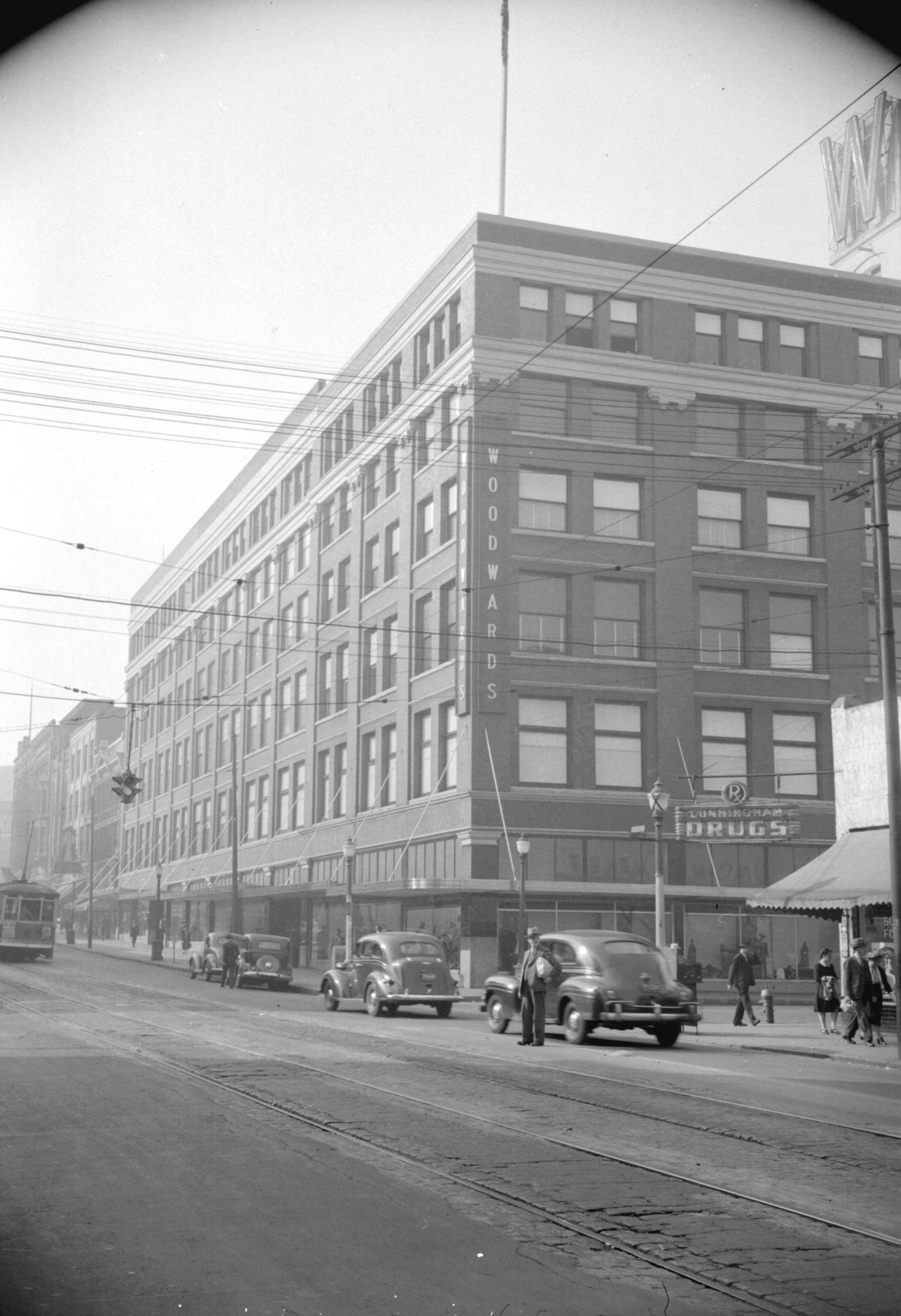
Image credit: Jack Lindsay, public domain
B. M.: And you’re saying she enjoyed working there?
Don Tibbel: Yes, she lived with her sister in Vancouver Heights and she would catch the bus and go right to the back of the store in those days.
B. M.: Down Powell Street.
Don Tibbel: Yeah.
B. M.: So, when you arrived in Vancouver in 1947, what do you remember about the city? What impression did it make on you?
Don Tibbel: Oh, it was in a hell of a shape.
B. M.: How so?
Don Tibbel: Well in Downtown poles were all falling over. I remember I went up and put a new secondary in and I had to undo the houses. There was a house there where I cut the wires off, and a woman three doors down said “hey, you killed my electricity!” They had a room from one house to the other. But that didn’t happen too often.
B. M.: So did you go to the beaches or the mountains back in the ’40s?
Don Tibbel: No, no…
B. M.: You were working all the time.
Don Tibbel: Well, you see, in Saskatchewan you didn’t have much of a chance to do that–I guess you could go to Jackfish Lake and all that. I got my first car, Model T, when I was 16, in 1939, ‘cause Dad didn’t have a car, and we had no way of getting around much.
B. M.: So you’re 14 miles out—what, you were on horseback before that? How did you get around?
Don Tibbel: By team.
B. M.: By train?
Don Tibbel: By team. In the 1930s they put a railroad right across the corner of our farm, but now it’s all gone. But it was pretty good.
B. M.: So you worked for Hume & Rumble for 40 years. That was a really big electrical contracting company and Hume was actually mayor of New Westminster through almost all the 1950s, and I think in the 1960s he built a great big house in the middle of British Properties.
Don Tibbel: I put the power in for him.
B. M.: When they built the house? What year was that?
Don Tibbel: I don’t remember. I was working as a lineman then…
B. M.: But it was in the 1960s, and that’s the house Jimmy Pattison bought— Mayor Hume’s house— and he’s still living in that house.
Don Tibbel: 15 East 2nd St. was Hume’s shop, and that’s where they had the trucks. There was an old barn…
B. M.: That’s now the Olympic Village.
Don Tibbel: Deb and Donna, my other daughters, take me around, and, Christ, I couldn’t find my way out. But I didn’t go to that part of town at all— it was too crowded.
B. M.: But you must have got out of the house on the weekends. Did you go to church?
Don Tibbel: Yes, there was a church across the street.
B. M.: You didn’t get very far.
Don Tibbel: The Veterans’ Project was across the street, and those guys (as we called them, “zombies”), were all in Canada and they got the same money I did, but they spent it on booze.
B. M.: They’d been in the military?
Don Tibbel: They’d been in Home Defense, as they called it. Right from Grandview Highway to 22nd St, that’s where they built all the houses for them.
B. M.: Post-war housing for veterans?
Don Tibbel: And there was one house in the West End, too. But those were the guys that came out of the hotel that was Downtown— Hotel Vancouver. They had got kicked out of there.
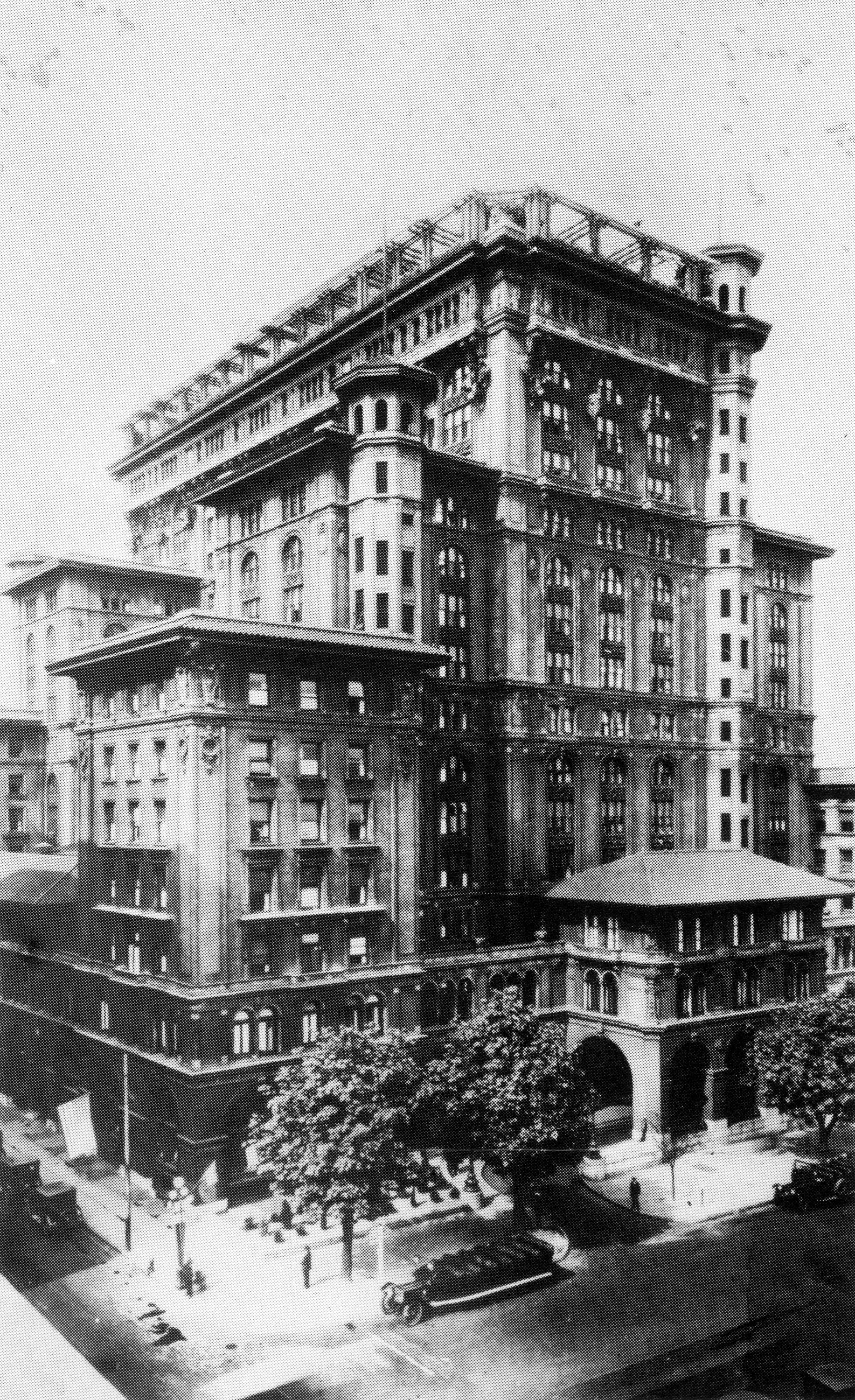
Image credit: Henry Arthur Bayfield, public domain
B. M.: They were in Homeland Security/Homeland Defense?
Don Tibbel: Well, there was nothing to defend, but they didn’t wanna go overseas.
B. M.: And when they moved them out they tore down that big old Hotel Vancouver at Georgia at Granville. My dad says that was the most beautiful building of Vancouver. Did you ever go in it?
Don Tibbel: No, I never was in it.
B. M.: Did you ever go to the PNE in the old days?
Don Tibbel: Oh, yes.
B. M.: So what was that like, what do you remember? It seems you liked the farm aspect of it, because in the 1950s they had lots of farming stuff at the PNE.
Don Tibbel: Yes, they had lots of good animals.
B. M.: Prize animals, prize vegetables, horses, cattle, and there were a few shows, like the horse show…
Don Tibbel: Well, we never stayed long. I stayed out of Downtown Vancouver as much as possible. Well, that’s not right either, because Dorothy and I would go shopping at The Bay whenever we wanted something big, like a dress.
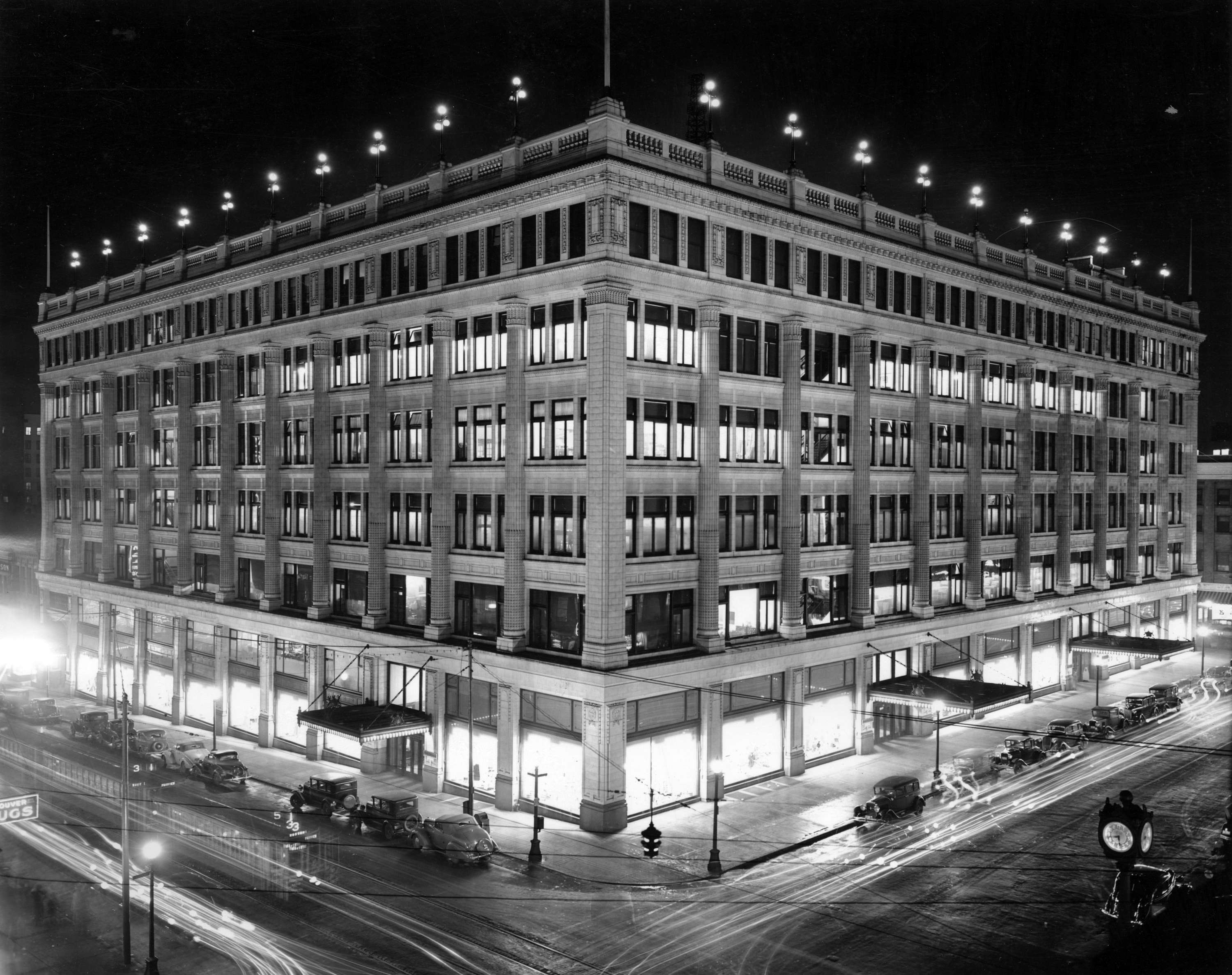
Image credit: M. James Skitt Matthews, public domain
B. M.: Downtown shopping at the three big department stores.
Don Tibbel: Woodward’s, and next to it there was…
B. M.: Army & Navy?
Don Tibbel: No, another one…
Don Tibbel: Spencer’s!
B. M.: It later became Eaton’s.
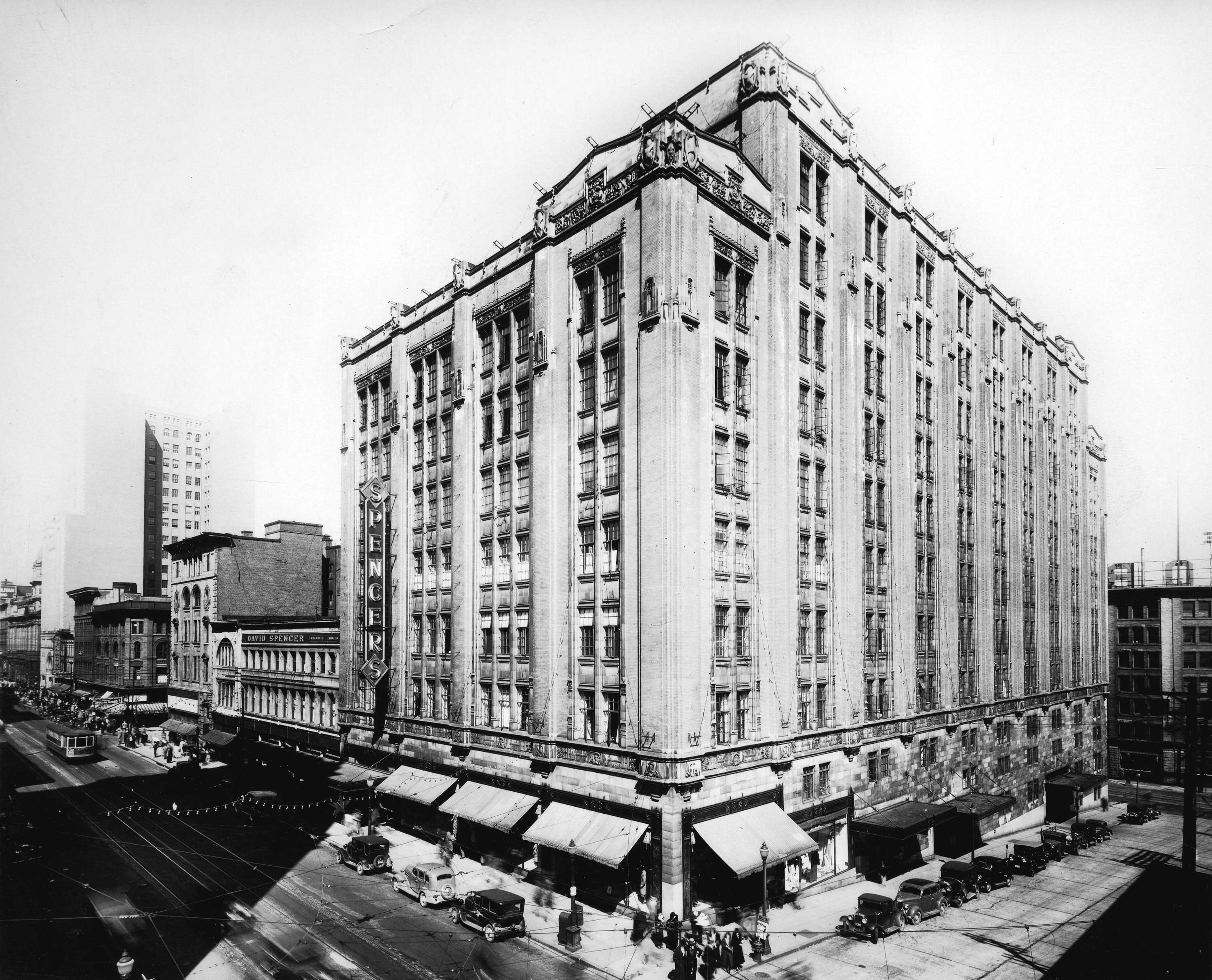
Image credit: David Spencer’s Department Store, public domain
Don Tibbel: I was so goddamn tired most if the time, especially doing line work.
B. M.: Up and down the poles; they’ll keep you in shape!
Don Tibbel: Well, I guess something did.
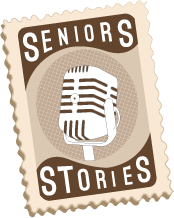



Leave a Reply